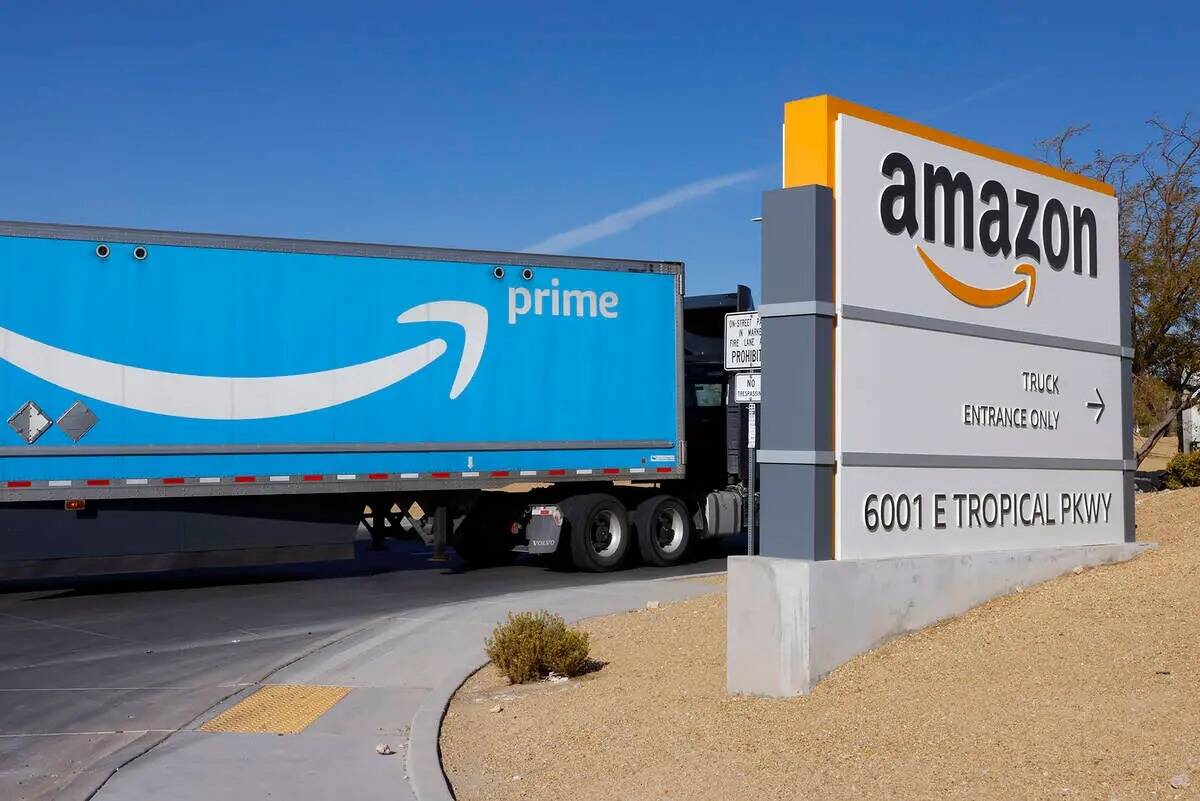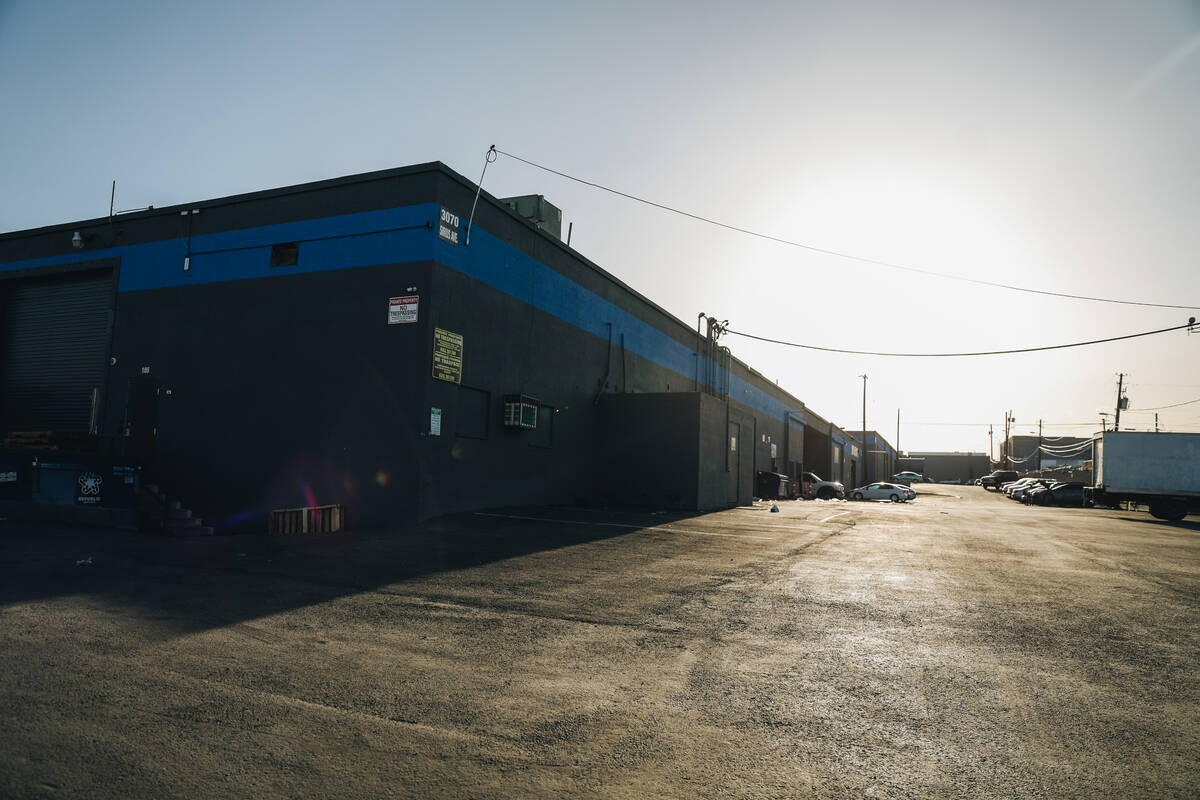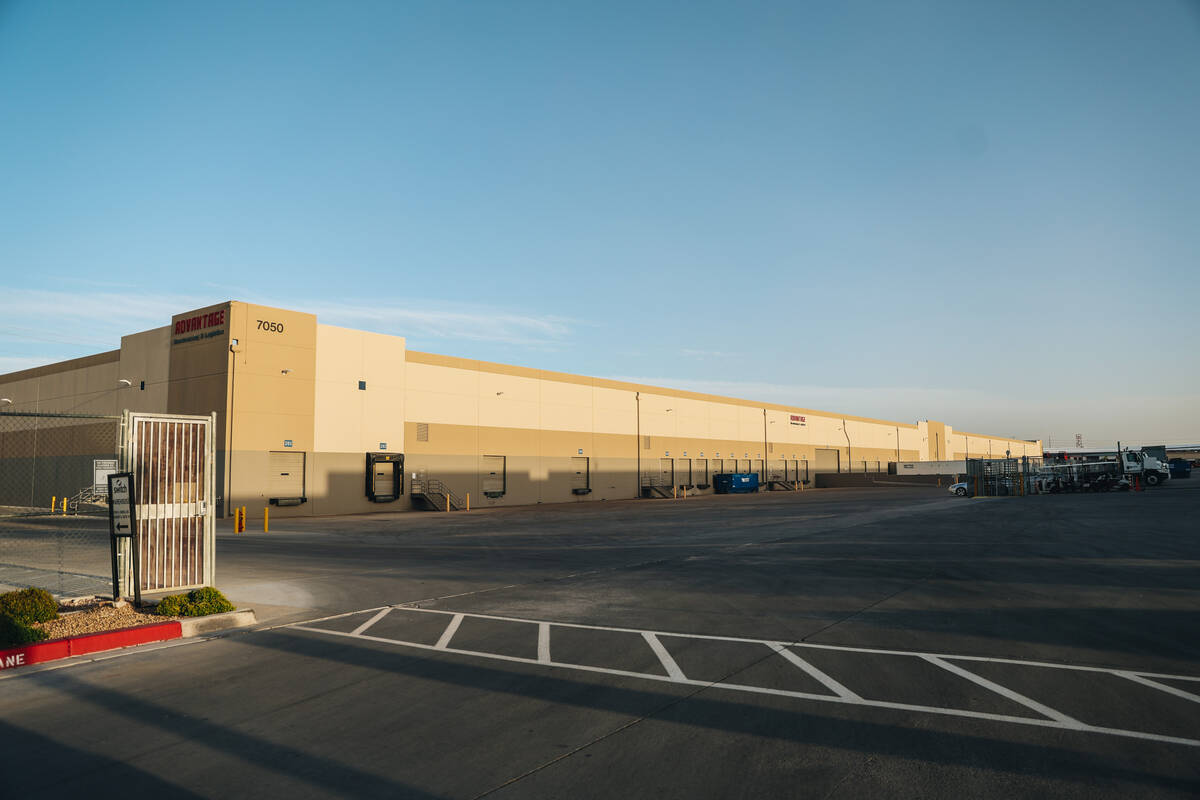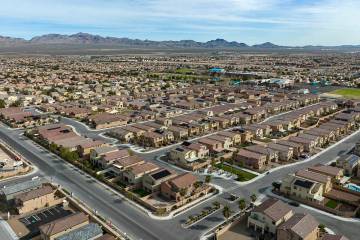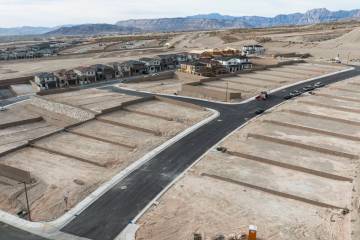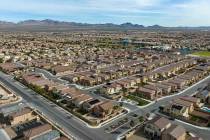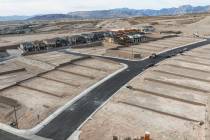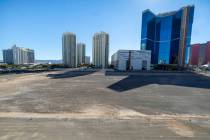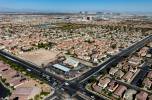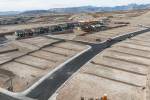How Southern Nevada is stealing California’s industrial mojo
The Las Vegas Valley cracked the top 10 nationally for new industrial space under construction for the first time ever last year, and Jerry Doty said this comes as no surprise to him.
Las Vegas has long relied on casinos and gaming to drive its economy, but that is changing and expanding — fast, said Doty, executive vice president for the Doherty Industrial Group at Colliers International.
“Vegas has obviously been primarily tourist driven for quite some time, and what we’ve seen on the industrial side is that tenant mix really shifted,” he said. “The largest occupier of space used to be trade show and exhibition companies that would service the convention centers and the various conventions we had in town.”
But around five years ago, Doty said he started noticing a distinct shift after the U.S. economy began to emerge from the Great Recession, noting one of the first speculative industrial buildings in the Las Vegas Valley was built in 2014, “kicking off a wave” of industrial development. He said an increase and change in consumer demand has led part of the charge as the rise of online shopping took hold of the American consumer.
A shifting business and political climate in California and the lower cost of available land and quicker entitlement process in Southern Nevada is now pushing more Golden State companies, and in particular their logistics and distribution space, to the Las Vegas Valley.
CommercialSearch ranked the Las Vegas Valley No. 9 for the most industrial space under construction. According to its data, the valley has over 11 million square feet of new stock under construction, an 8.4 percent increase in the current stock of 132 million square feet.
“We’ve really see a swing in distribution uses, so whether it be third-party logistic companies or direct distributors, they are now the largest occupier of space,” Doty said. “We started to build larger buildings in that time frame and it has partially drawn companies from California, moving their distribution out of California to Southern Nevada. And we’ve also become a California alternative, so companies from the Midwest or East Coast, setting up distribution hubs to service the entire West Coast out of Las Vegas, so our industrial base has swung pretty significantly.”
He said some of these companies are keeping a footprint in California, like a corporate office, but others are completely pulling up stakes from the neighbor state because of such things as operating costs, political issues and sometimes environmental concerns.
“I’ve heard the same speech from businesses for years, ‘Oh, eventually we’ll get out of California, it’s so hard to do business in California,’” Doty said. “But we haven’t really seen (these companies) actually move here up until the last three or four years.”
Available land directs development
The Bureau of Land Management owns approximately 48 million acres in Nevada, or close to 63 percent of the state’s land base. This has, in turn, pushed development to specific areas, said Donna Alderson, executive managing director at Cushman & Wakefield who focuses on the sale and leasing of industrial properties.
“Due to extensive government-controlled land in Nevada, industrial growth has primarily occurred in North Las Vegas and Apex (industrial park in North Las Vegas) in recent years, as these areas have had greater land availability. However, there is now development emerging in the southern part of the Las Vegas Valley.”
Greg Tassi, vice chair for Cushman & Wakefield who specializes in industrial real estate, said the valley almost broke records last year in terms of both net absorption and construction completion for industrial, driven partially by the “ongoing demand for more favorable West Coast logistics options compared to several other regional markets.”
Tassi pointed to three mega projects as a clear sign that national developers and institutional capital partners are now taking Southern Nevada seriously — Prologis buying close to 1,000 acres at the Apex Industrial Park in North Las Vegas for a planned 11 million-square-foot industrial complex along with two Eldorado Valley deals: DIV Industrial’s acquisition of 95 acres and Amazon’s purchase of 300 acres.
“This will be a new record for completions in a calendar year and will likely normalize vacancy and stabilize the lease rates,” he said.
Cushman & Wakefield data shows more industrial activity in the valley than CommercialSearch, with around 16 million square feet of product in various stages of construction that are scheduled to be completed by January 2025.
But Tassi said some delayed projects that were originally slated to start in the second half of 2024 will put “pressure” on inventory into later half of 2025 and into 2026.
Nevada’s proximity to California, which has the largest economy in the country, and the Silver State’s emergence as a new West Coast logistical hub are all playing into our favor given the current market climate, said Owen Sherwood, who works in the commercial title industry for Fidelity National Title. He called Southern Nevada’s emerging role as a West Coast industrial powerhouse as a “sleeping giant” finally starting to wake.
“Southern California has become so expensive and it’s become really time consuming for developers to build there. And so if a developer can come here and get land cheaper, it’s just a much more attractive development,” he said. “Not only for the initial costs that it takes to develop, but the permitting, zoning and planning land use time frame is a huge component. So why pay $4 a foot in Inland Empire if you can pay $1 a foot in Southern Nevada?”
Brian Gordon, a partner at Applied Analysis, said their research uncovered that over the past five years there has been more than 30 million square feet of industrial development activity in Clark County and the incremental inventory has been fully absorbed by the market, all the while the vacancy rate has remained below 5 percent over that same time period.
Gordon echoed Sherwood’s statement about Nevada also being in the right place at the right time regarding California, and said at the end of the day in the business world, money still talks and the Golden State’s loss has been to Nevada’s gain.
“Clearly Nevada has signalled to the world that it’s open for business, and business owners and executives have taken notice of this and the opportunities that exist in the Silver State,” he said. “Nevada has the seventh best business tax climate in the country and that provides opportunities for businesses to either expand or relocate here to the region.”
Contact Patrick Blennerhassett at pblennerhassett@reviewjournal.com.



